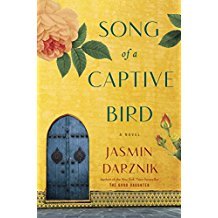What do you think?
Rate this book


416 pages, Kindle Edition
First published February 13, 2018
And this is me
a woman alone
on the threshold of a cold season
on the verge of understanding
the earth's polluted existence
and the simple sadness of the sky
and the weakness of these hands.
. . .
I'm cold,
I'm cold it seems
I'll never be warm again . . .
I'm cold and I know
there's nothing left of the wild poppy's dreams
but a few drops of blood.
-from "Let Us Believe in the Dawn of the Cold Season"